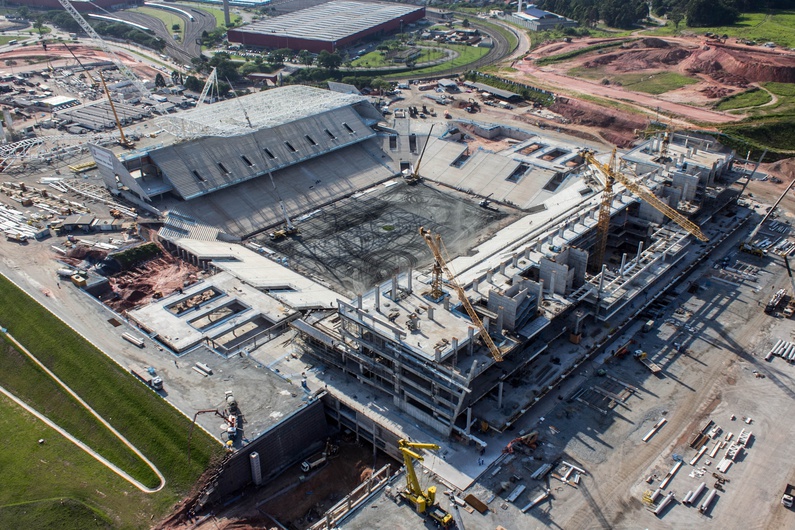
The 2014 WORLD CUP: A FEW BILLION TOO many?
Published on
Translation by:
Tom GaleThe football World Cup is one of the most well known and popular sporting events on the planet. However, away from the matches, there is a whole system of actors in addition to the players and referee. The 2014 World Cup brings with it a number of positive and negative economic impacts, from which multiple contradictory conclusions have been drawn.
The World Cup has certainly brought its share of problems to the Brazilian economy, but a number of positives can also be found. This has been one of the most lucrative World Cups in history: FIFA has pocketed 4.2 billion dollars (2.5 billion in TV rights and 1.7 billion in sponsoring). The Word Cup has also brought more than 3.7 million tourists to Brazil, generating some 9.2 billion dollars (or about 2,500 euros per tourist) in tourist revenue. The World Cup has also helped to lower Brazil's unemployment rate by creating 3.63 million jobs. During the construction process, Brazil was able to modernise its infrastructure and invest in the building of new stadia. However, these modernisation projects caused a number of major inconveniences.
 The construction of the stadiums fell behind schedule. These delays meant that the project surpassed its initial budget by 12.6%. The initial estimate was 3.1 billion dollars, but the final amount spent was 3.68 billion dollars - an enormous overspend! For example, the cost of the most expensive stadium rose to 444 million euros and the cheapest to 103 million euros. A number of projects in particular were abandoned due to overspending; retractable roofs and other harebrained ideas fell by the wayside. Due to the delays accumulated in building the stadiums in Cuiabá and Manaus, the Brazilian government exceeded its provisional budget.
The construction of the stadiums fell behind schedule. These delays meant that the project surpassed its initial budget by 12.6%. The initial estimate was 3.1 billion dollars, but the final amount spent was 3.68 billion dollars - an enormous overspend! For example, the cost of the most expensive stadium rose to 444 million euros and the cheapest to 103 million euros. A number of projects in particular were abandoned due to overspending; retractable roofs and other harebrained ideas fell by the wayside. Due to the delays accumulated in building the stadiums in Cuiabá and Manaus, the Brazilian government exceeded its provisional budget.
During the construction of these stadiums, a number of cities almost pulled out of the project. The city of Porto Allègre, for example, threatened to withdraw unless taxes were lowered; the city was facing severe financial difficulties.
FIFA and the Brazilian government have had to resolve these serious problems. Meetings took place to decide on a "Plan B" to mitigate the delays in the construction of the stadiums, but nothing came of them: almost all the stadiums built for this World Cup have been over budget.
It is thus possible to claim that the organisers of this World Cup have not lived up to expectations: between the stadiums coming in over budget and the delays the losses are huge. This all points to a different question: Could Brazil have spent all this money on something more interesting?
Translated from Mondial 2014 : Quelques Milliards de trop ?



